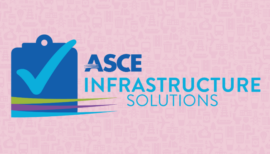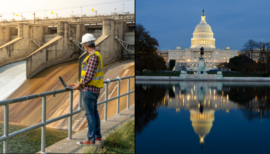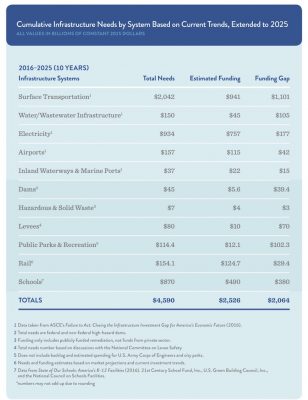The Trump Administration’s plan is a solid first step in having a real conversation about solutions for the nation’s aging infrastructure and a path to address our infrastructure investment deficit.
As stewards of the nation’s infrastructure, the American Society of Civil Engineers recommends the following principles be reflected in any infrastructure legislation:
- Investments must provide substantial, long-term benefits to the public and the economy;
- The cost of a project over its entire life span – including designing, building, operating, and maintaining the infrastructure – must be taken into account;
- Projects should be built sustainably and resiliently; and
- Federal investment should leverage state, local, and private investment, not replace these other critical sources of infrastructure funding.
ASCE urges President Trump and the 115th Congress to focus first on prioritizing those aspects of our infrastructure most in need of repair, replacement, and modernization, to sustain our economy, public health, and safety.
Further, a critical component of any plan to rebuild and modernize our infrastructure must be to fix the federal Highway Trust Fund (HTF) – the federal fund that pays for bridges, roads, and transit. The Highway Trust Fund provides essential funding for our transportation network but faces a looming shortfall because the federal gas tax rate has been increased since 1993. To put this in perspective, a loaf of bread cost 75 cents in 1993, while today it costs $2.50. Similarly, a car cost $12,750 on average in 1993, and is more than double today at an average $33,650. Meanwhile, we are still trying to use 1993 dollars to build 2018 infrastructure and it’s not adding up.
To prevent the projected funding shortfall and improve our surface transportation network, we must raise the motor fuels user fee by 25 cents per gallon. Increasing the user fee rate would provide the revenue needed to modernize our roads, bridges, and transit and address the funding deficit. This would provide a much-needed infusion of $375 billion over ten years and combat the $1.1 trillion investment gap in roads, bridges, and transit between now and 2025.



























